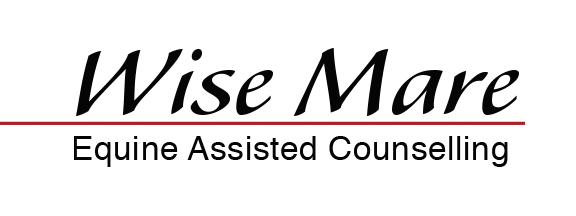There are a lot of things I like about horses but the two things I like the most are their attitude toward life and the ways in which they communicate.
There’s a famous study by Dr. Albert Mehrabian that says communication between humans is 7% verbal and 93% nonverbal. It breaks down to 38% through tone of voice, and 55% through facial expression and body language. The remaining 7% is what we actually say.
Does this sound familiar? You’re at work and another employee walks in. Before they see you, you notice the tension in their face and the stiffness in their body. If you’re sensitive to such things you might feel the anxious, irritable or angry energy that the person projects. If you work closely with that person you might begin to feel like you’ve done something wrong or there’s just something about you that’s irritating. If you’re brave you might ask if everything is ok and when you get a tight smile and a curt, yes fine why do you ask, you back off and begin to imagine all the things you may have done to make this person so angry. At the end of the day you feel drained and anxious and you beat yourself up for all your imagined transgressions.
As a therapist I know that people keep a lot of their thoughts and feelings to themselves. They smile when they’re sad or laugh and joke when they’re angry. The psychological term for that is incongruence or a lack of authenticity. Therapists have to train themselves to be aware of and address the non-verbal cues in order to help their clients. In other words to the best of their ability they have to challenge people to speak the truth even though it leaves the client feeling exposed and vulnerable. It’s an effective way to help them resolve the internal emotional conflicts that keep them stuck in negative thought patterns that lead to depression and anxiety.
Why are we afraid of our emotions? Why do we care so much about what others might think of us that we smile when we’re angry or irritated, pretend to be calm when we’re anxious or put on a brave front if we’re sad or depressed. We keep a list of acceptable emotions and put up with all kinds of undesirable behaviors and situations in order to stay safe and not rock the boat.
At our core we long for acceptance in order to feel safe, connected and ultimately to get our emotional needs met. Ironically, by hiding what we feel and ignoring the non-verbal cues of others the exact opposite happens. We become isolated and disconnected. We misinterpret non-verbal cues and begin to imagine all kinds of negative things about ourselves and other people. We don’t know the truth but we’re afraid to find out so we stay safe and imagine the worse.
Horses, on the other hand, have evolved in a way that makes them very skilled at clear and direct communication. As a species, they have one of the most sophisticated communication systems on the planet. They communicate non-verbally and very directly through body language and emotion. It’s important for their survival to show feelings that humans may choose to hide. To them it makes sense to let the rest of the herd know when they are anxious, afraid, irritated etc. It’s an effective way to communicate needs and an early warning system when a predator is on the attack. It makes them very sensitive, perceptive and tuned in to the intentions and feelings of others.
Horses are often described as mirrors because their actions reflect how a person is really feeling. If you spend enough time around horses and pay attention you’ll begin to notice how your state of mind directly affects their attitude toward you. If you’re stressed out and anxious you’re communicating to them that something’s wrong even if you have a big smile on your face. They are flight animals. If you’re communicating danger they’re going to want to run away. You can’t connect with an animal who’s trying to get away from you.
Instead, you must challenge yourself to be in the moment. To forget about the financial problems or the big fight you just had with your boss, the terrible traffic or the irritating neighbor. It helps to focus on breathing, to notice the natural environment and to attend to the needs of your horse. The state of mind you need to be in is relaxed, calm and confident. If you can achieve that you can connect with your horse and that is very rewarding on many levels.
Horses teach you to shift your state of mind and that gives you a break from the emotional minefield that is so pervasive in human communication. You also learn to override the habit of being in an anxious and fearful state of mind by regulating your internal emotional system. This makes you a calm, confident and assertive leader. It’s not just horses that appreciate that, humans do as well. This is a big reason why it is so therapeutic to spend time around horses.
No matter what stresses, irritations or disappointments I’ve had to face, when I drive up to the barn my focus begins to shift, my thoughts begin to change and I feel like I can breath again. It’s a habit I’ve gotten into and the reward is the soft nicker I hear when I approach my horse because we both know that at the moment, anyway, everything is all right with the world.

